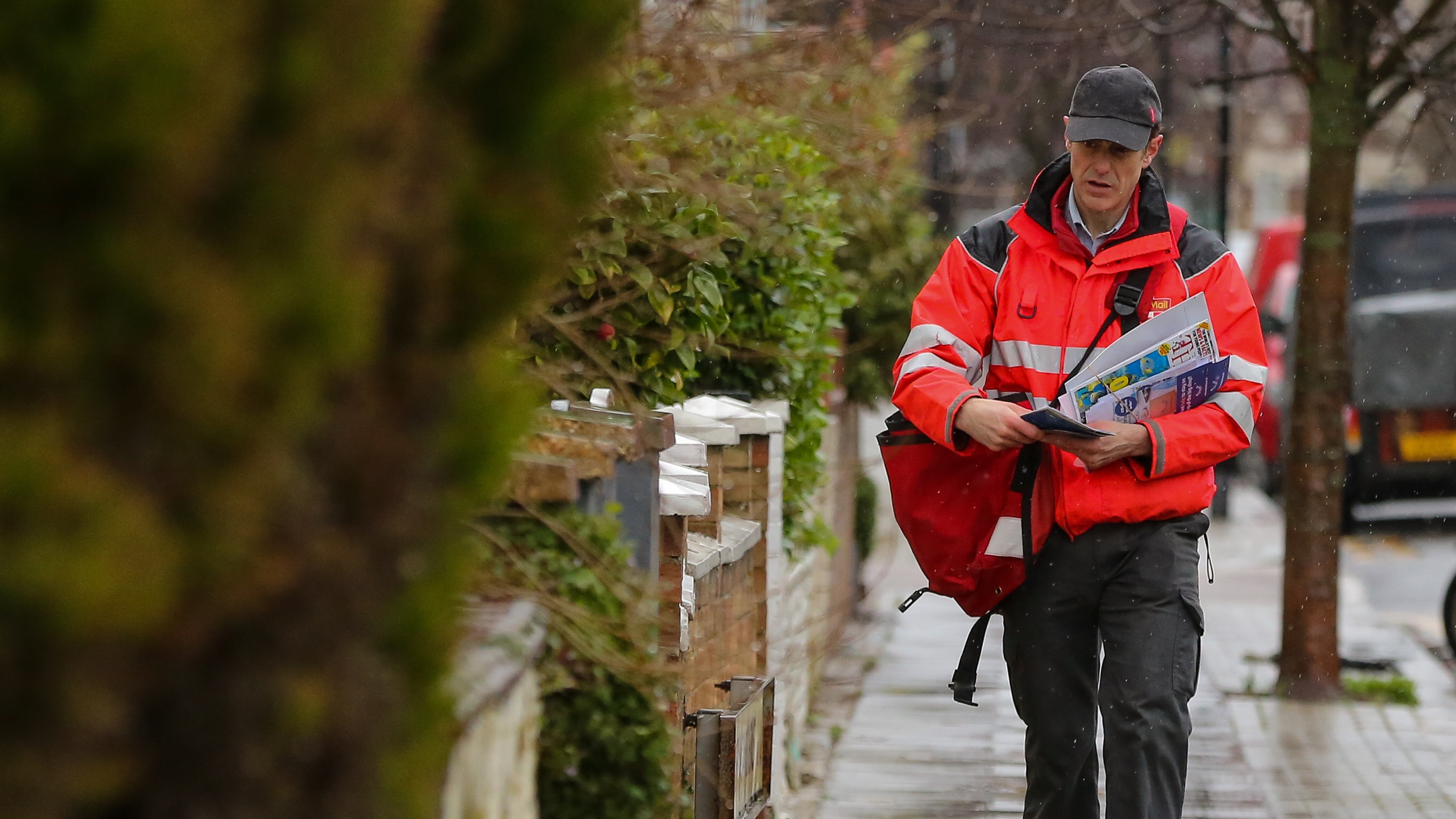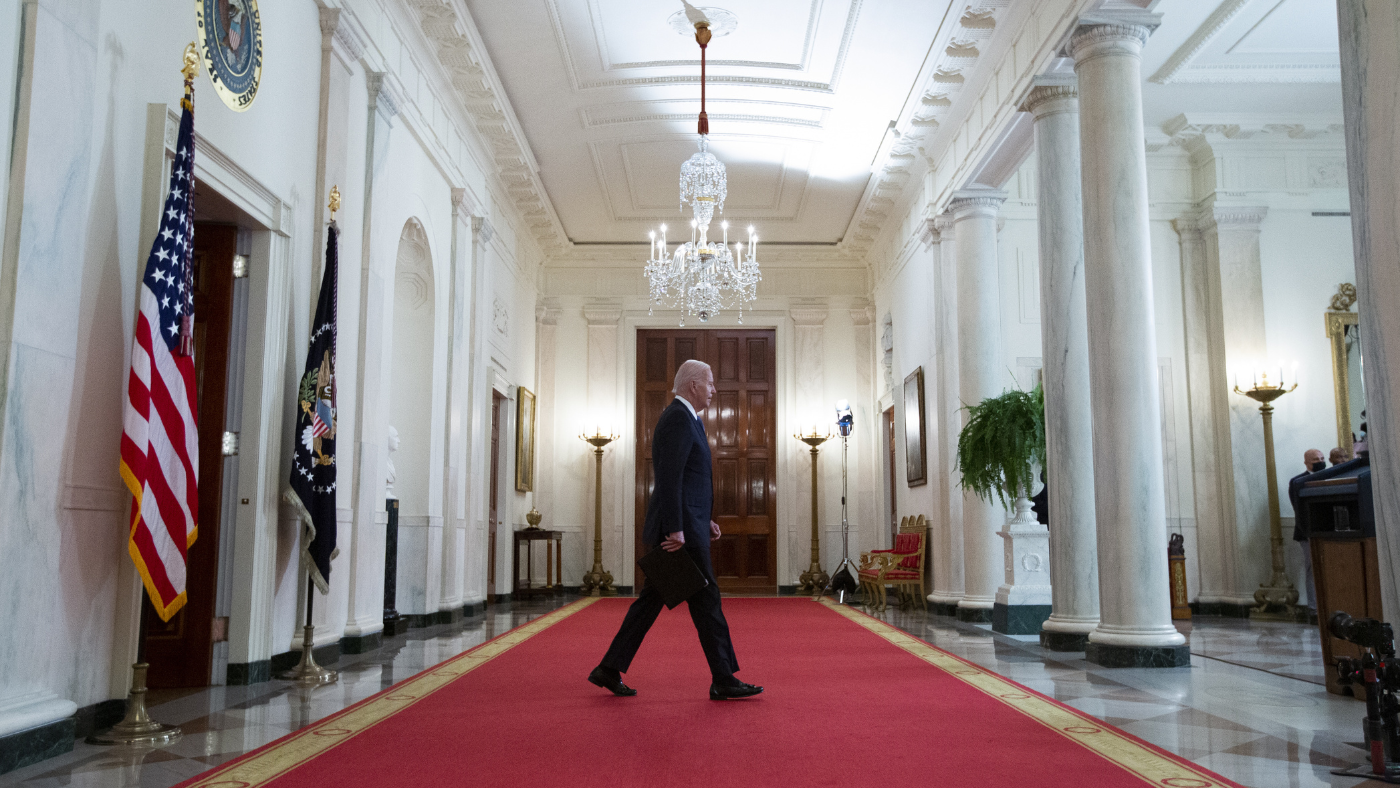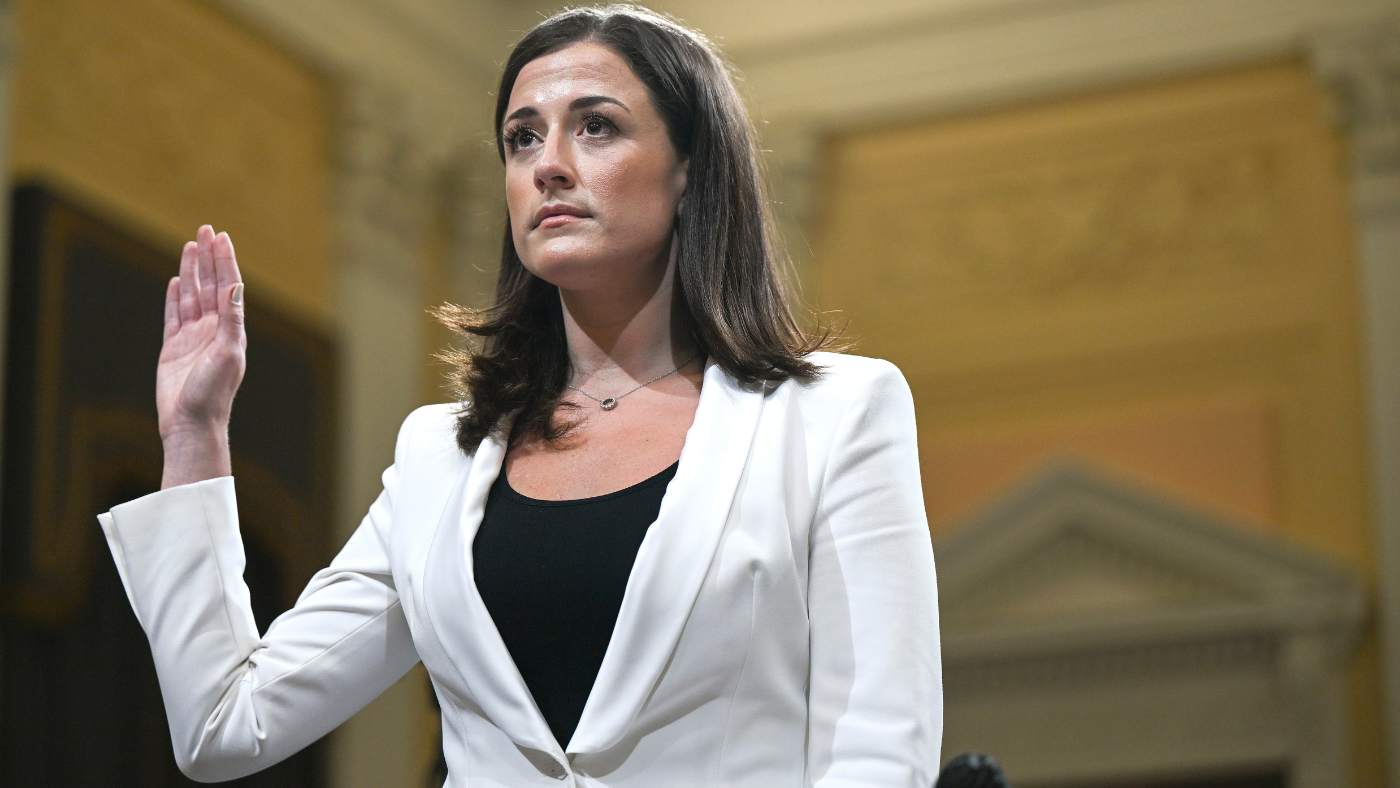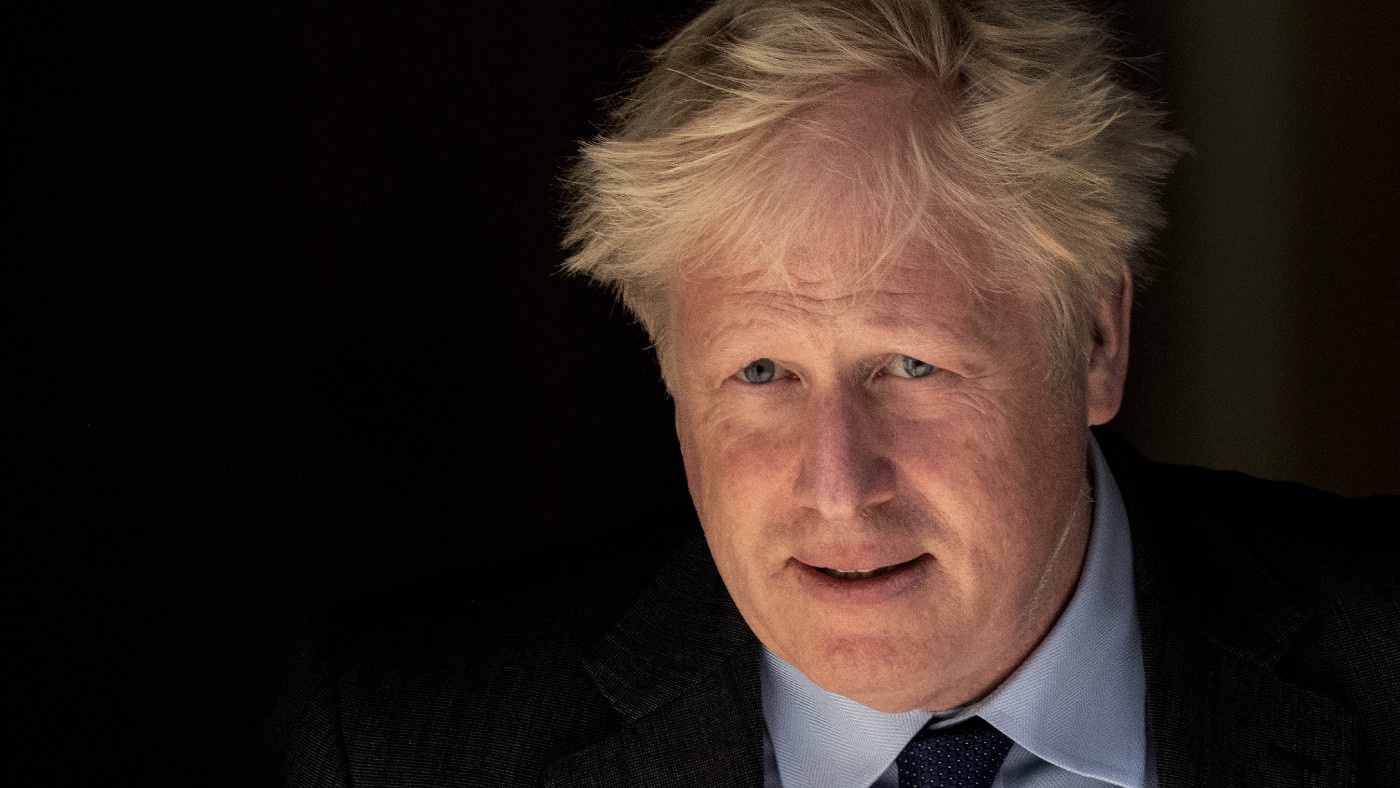‘Asking posties to act as community watchmen is an inspired idea’
Your digest of analysis from the British and international press

A free daily email with the biggest news stories of the day – and the best features from TheWeek.com
You are now subscribed
Your newsletter sign-up was successful
1. Royal Mail Health: postman’s knock
The editorial board at The Times
on expanding roles
“The cheerful knock of the postman, the clink of milk bottles on the doorstep and the thud of the paperboy’s delivery were all once part of the daily rhythm, acknowledged with a friendly wave,” said today’s leader in The Times. “Sadly there are ever fewer who make it up the drive or cycle over moorland to reach your door. But Royal Mail has turned disaster into an opportunity.” During the Covid lockdown, Royal Mail Health was set up to deliver medicines to the housebound. That “inspired idea is now to be expanded”, with postal workers asked to check up on vulnerable people “as part of their daily round”, said the paper. “Asking posties to act as community watchmen would appeal to the good nature of most, as long as the dog is on the leash.” The Times continues: “It might not go down so well with the unions. Would there be extra payment? Special training? Insurance and indemnity? It can surely be worked out. Why not deliver the milk, paper and a morning greeting as well?”
The Week
Escape your echo chamber. Get the facts behind the news, plus analysis from multiple perspectives.

Sign up for The Week's Free Newsletters
From our morning news briefing to a weekly Good News Newsletter, get the best of The Week delivered directly to your inbox.
From our morning news briefing to a weekly Good News Newsletter, get the best of The Week delivered directly to your inbox.
2. What can Glastonbury 2022 teach us about our post-Covid world?
Hamish McRae in The Independent
on the magic of shared experience
“Glastonbury’s triumphant revival tells us a huge amount about the post-pandemic world economy – what is really pretty much the same, and what can we learn from this,” writes Hamish McRae in The Independent. “The overriding story, though, is that people have to get together. It’s the magic of the real thing,” says McRae. The success of this year’s Glastonbury proves that “technology is not a complete substitute” for “shared experience”, adding that “there is something about the personal performance, the elements of surprise and serendipity, that make Glastonbury so special”. In the same way, in our post-pandemic world, we must learn that “sometimes it is better to go into a shop and buy something, rather than get the wrong item online and have to send it back. Sometimes you should have a chat in person in the office, rather than jumping on a Zoom call,” writes McRae. “But often, the reverse is true. And figuring that out is one of the big tasks ahead for all of us.”
A free daily email with the biggest news stories of the day – and the best features from TheWeek.com
3. The TikTok generation’s anti-work movement is dangerous and unrealistic
Lucy Burton in The Daily Telegraph
on clocking off
“There is a growing ‘anti-work’ movement happening around the world which has made it fashionable to quit the rat race,” writes Lucy Burton, The Daily Telegraph’s employment editor. “What started as a fringe online revolution is now turning mainstream, with membership on Reddit’s r/antiwork group (hailing ‘unemployment for all, not just the rich!’) exploding since 2020,” she writes. Some elements of this movement are “long overdue”, she says, adding: “There is clearly something wrong with working culture if it is considered radical for low-earners to ask for more. But there are also problems with buying too much into the ‘anti-work’ trend,” Burton continues. For many people “their job is the most satisfying part of life and for good reason, although few would dare admit that out loud”, she writes. Those who “promote quitting when times get tough could be encouraging a blanket intolerance to working life that could see some young people too easily drop out of what would have been a fruitful and satisfying career”.
4. The secret of Mick Lynch’s success
Mark Solomons in The Spectator
on new leadership
“There are plenty of losers from [last] week’s railway strikes, not least the legions of commuters who found themselves stuck. But one clear winner is emerging: RMT boss Mick Lynch,” writes Mark Solomons, a former industrial correspondent for The Sun, in The Spectator. “Lynch has been feted for his straight-talking media appearances and composure under fire. He’s clever, witty and funny. It also helps that he has made fools out of some of those media darlings some British viewers love to hate. It’s surely only a matter of time before he pops up on Have I Got News For You,” Solomons continues. “But perhaps his greatest asset isn’t what he offers but who he isn’t. What sets him apart is how different he is from Bob Crow, the firebrand former general secretary of the RMT,” says Solomons. The public saw in Crow a “snarling, belligerent bulldog of a union leader, a self-confessed socialist who refused to give up living in his council house because ‘I was born in one and I’ll die in one.’” While Lynch “won’t win over everyone” it’s clear that, nevertheless, “the Tories are struggling to dish the dirt on a trade union leader who is more persuasive and savvier than Bob Crow ever was”.
5. We know Boris can’t change but here’s a plan he can get his teeth into
Philip Collins in The Evening Standard
on political purpose
“Boris Johnson has told us that he is not about to undergo a psychological transformation,” writes Philip Collins in the Evening Standard. There seems to be “little sign that the Cabinet have decided to tell him his time is up,” writes Collins, so is there “anything Mr Johnson can do to get better?” The PM “now needs a new purpose”, Collins says, because at the moment it “looks like there is no reason beyond the satisfaction of his own ambition for Mr Johnson to be in politics”. He “needs to give the impression that, somewhere in his operation in Downing Street, someone has got a grip”. Indeed, the “truth about government is that, unlike the sport of politics, it is a bit of a grind, even a little boring on a daily basis”, says Collins. And there is nothing in Johnson’s history as a journalist to suggest he “can knuckle down in the way he needs to”. He needs to “take this deficiency seriously and appoint people to fill in the gap”. It might not convince the world that he has changed, but he should at least give the impression that the Government “is seeking to do something”.
-
 The Olympic timekeepers keeping the Games on track
The Olympic timekeepers keeping the Games on trackUnder the Radar Swiss watchmaking giant Omega has been at the finish line of every Olympic Games for nearly 100 years
-
 Will increasing tensions with Iran boil over into war?
Will increasing tensions with Iran boil over into war?Today’s Big Question President Donald Trump has recently been threatening the country
-
 Corruption: The spy sheikh and the president
Corruption: The spy sheikh and the presidentFeature Trump is at the center of another scandal
-
 ‘The UK’s malaise will not end with the Prime Minister’s exit’
‘The UK’s malaise will not end with the Prime Minister’s exit’Instant Opinion Your digest of analysis from the British and international press
-
 ‘Police tactics are not getting worse, they are simply being filmed’
‘Police tactics are not getting worse, they are simply being filmed’Instant Opinion Your digest of analysis from the British and international press
-
 ‘G7 leaders missed a golden opportunity’
‘G7 leaders missed a golden opportunity’Instant Opinion Your digest of analysis from the British and international press
-
 ‘It takes some soul searching to celebrate Canada Day’
‘It takes some soul searching to celebrate Canada Day’Instant Opinion Your digest of analysis from the British and international press
-
 ‘Breakthrough on abortion rights could be there if Biden reaches for it’
‘Breakthrough on abortion rights could be there if Biden reaches for it’Instant Opinion Your digest of analysis from the British and international press
-
 ‘If only Mark Meadows had even half Cassidy Hutchinson’s courage’
‘If only Mark Meadows had even half Cassidy Hutchinson’s courage’Instant Opinion Your digest of analysis from the British and international press
-
 ‘Boris Johnson measures success in biceps rather than brain power’
‘Boris Johnson measures success in biceps rather than brain power’Instant Opinion Your digest of analysis from the British and international press
-
 ‘The Tories have no idea that worse is to come’
‘The Tories have no idea that worse is to come’Instant Opinion Your digest of analysis from the British and international press